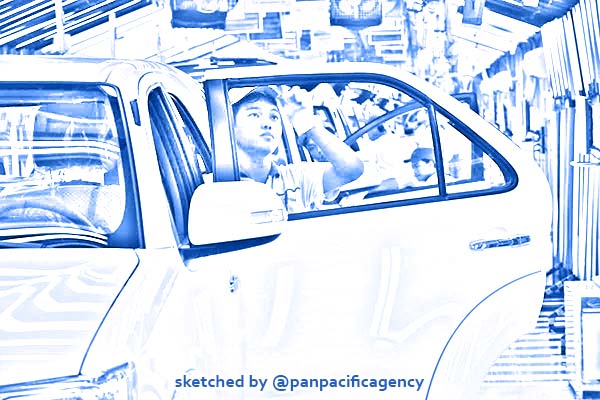Toyota to pause India expansion, blames ‘we don’t want you’ tax: Report

This file photo shows Indonesian workers inspecting Toyota vehicles at the assembly line of Toyota Motor's Indonesian unit, Toyota Motor Manufacturing Indonesia (TMMIN) plant in Karawang industrial centre outside Jakarta. (AFP Photo). Sketched by the Pan Pacific Agency.
NEW DELHI, Sep 15, 2020, India Today. At a time when the Indian government has been inviting more firms to manufacture locally in India, automaker Toyota said it will not expand further in India, citing the country’s high tax regime, reported Bloomberg, according to the India Today.
Quoting Toyota Kirloskar Motor Vice Chairman Shekar Vishwanathan, the Bloomberg new report said the government has imposed high taxes on cars and motorbikes in the country, making it hard for the companies to build units.
Vishwanathan also said that the high taxes are also impacting its sales as many consumers are unable to pay such high prices for purchasing a car. This, in turn, has idled factories and hampered job creation.
“The message we are getting, after we have come here and invested money, is that we don’t want you,” Viswanathan told the publication.
While Toyota will not exit India, Vishwanathan added that there is no scope of scaling up its business.
Toyota, which is one of the world’s biggest carmakers, started operations in India in 1997. Toyota’s local unit, Toyota Kirloskar Motor, is owned 89 per cent by the Japanese parent company, Toyota Motor Corporation.
The company’s market share in India has come down to 2.6 per cent in August 2020 in comparison to nearly 5 per cent a year earlier, said the report quoting Federation of Automobile Dealers Associations.
HIGH TAXES IN INDIA
The report highlighted the high taxes on cars, two-wheelers and sports utility vehicles (SUVs) in India. All of them attract 28 per cent taxes besides an additional levy — ranging from 1 per cent to as much as 22 per cent — based on the car’s type, length and engine size.
It may be noted that a tax on a four-meter long SUV with an engine capacity of more than 1,500 cc is as high as 50 per cent in India.
The government had earlier imposed high additional levies on goods that are considered to be a luxury. Items that are considered a luxury in India include cars, cigarettes and even sparkling water.
Vishwanathan went on to tell the publication that such punitive taxes “discourage” foreign investment and erode automakers’ margins. He added that these taxes directly impact the cost of launch new products.
“You’d think the auto sector is making drugs or liquor,” he told Bloomberg.
Vishawanathan also feared that electric vehicles, currently taxed at 5 per cent, will “probably” go up once sales increases. He said it has become a pattern with successive governments in India.
While many discussions are currently going on to provide relief to automakers in India, there has been no final decision on a reduction.
It may be noted that automobile sales have been drying up in India much before the coronavirus pandemic. However, the current situation is likely to make it even more difficult for carmakers to increase revenue and grow in the country.
Vishwanathan made many other points during his interview with Bloomberg. One of the key points he made was related to the demand crisis in India.
He said India first needs to have demand for a product before asking firms to set up shop. He also criticised the government for immediately increasing taxes on products “at the slightest sign of a product doing well”.